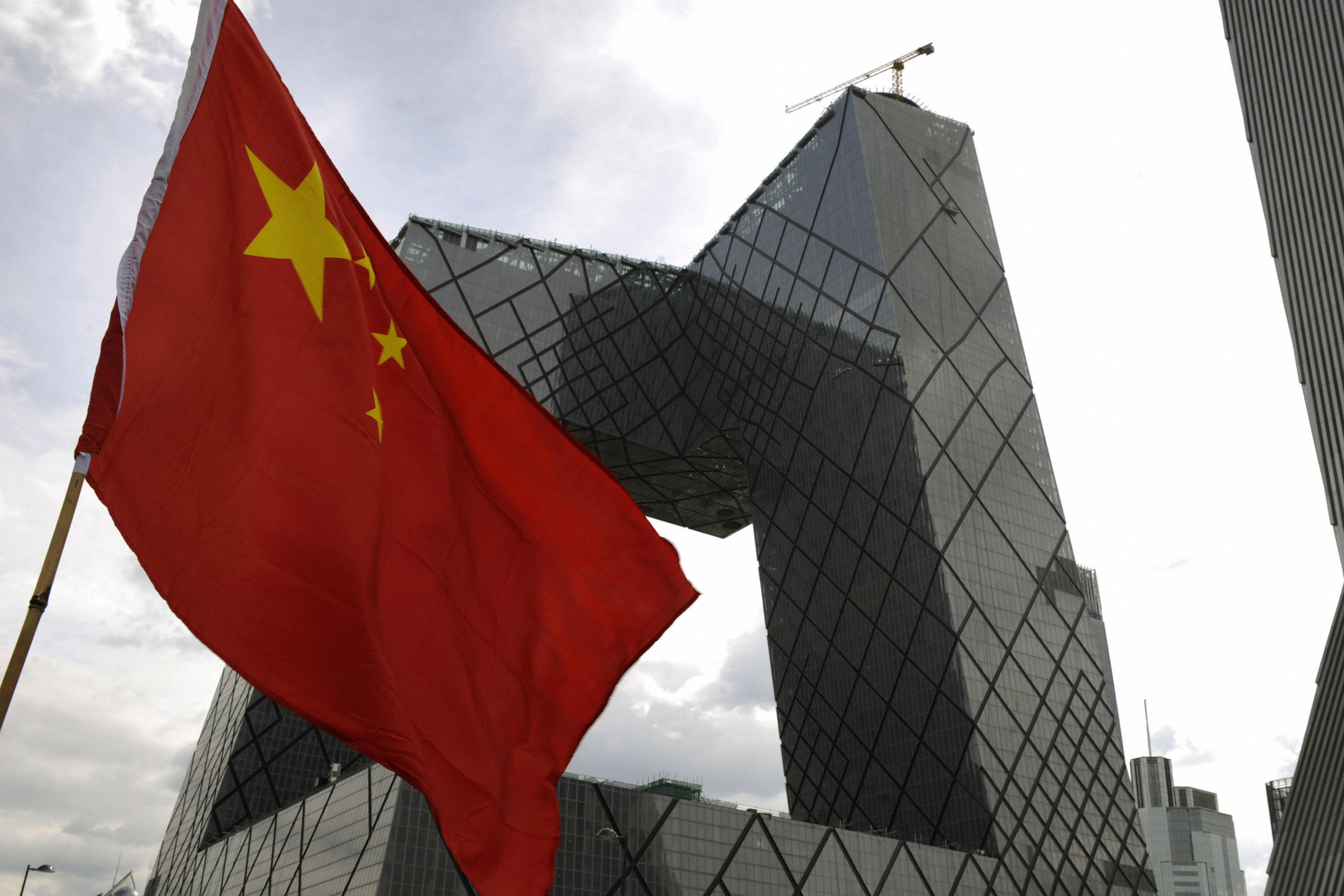
The headquarters of the Central Chinese Television (CCTV).
Axel Schmidt | DDP | Getty Images
China's state-run media outlets have come out in force this week after keeping relatively quiet in the wake of U.S. President Donald Trump's surprise announcement of tariff increases on Chinese goods.
Whether it's the mouthpiece of the Communist Party or the national television broadcaster, the latest commentary exudes confidence about China's ability to stand up to the U.S. That's in contrast to a more muted press in preceding weeks. In an environment of tight government control of what messages are allowed to surface, the shift can shed light into what Chinese leaders are thinking about the drawn out trade negotiations.
"I expect it was ordered by the top leadership to forward the narrative of the U.S. as bully and China as victim," said Scott Kennedy, director for the project on Chinese business and political economy at the Center for Strategic and International Studies.
"Putting the talks in broader normative terms gives (Beijing) leverage — 'I can't make big concession because my society will be angry' — but it also makes it harder for both sides to dispassionately find common ground," Kennedy added.
The world's two largest economies have been embroiled in a trade dispute for more than a year. While Trump has focused on the U.S. trade deficit with China, issues include complaints that Beijing has fostered an uneven playing field with the alleged forced transfer of technology and a lack of intellectual property protections.
The two sides appeared close to a deal, until Trump tweeted on Sunday, May 5, Washington time, that tariffs on $200 billion worth of goods imported from China would increase to 25% from 10% that coming Friday. He cited a lack of progress on trade talks, and also threatened 25% tariffs on an additional $325 billion worth of Chinese goods would come "shortly."
Having experienced more than 5,000 years of disturbances, what kind of battle formation have the Chinese people not seen?
Kang Hui
Chinese television announcer
Official Chinese channels were quiet on the development for more than 24 hours until the Ministry of Foreign Affairs held its regular press conference, typically daily at 3 p.m. Beijing time, or 3 a.m. ET, during the work week. Spokesman Geng Shuang said the Chinese delegation was still preparing to travel to the U.S. for consultations on trade, but would not give any details.
When pressed by reporters, Geng said multiple times that they should contact the relevant department, which he did not specify by name.
"The relevant authority, naturally, is the one relevant to the issue. That's why I will need to refer you to them," he said, according to an official English-language transcript. A video clip of his non-answer was widely shared on Chinese social media. The Ministry of Commerce did not respond to requests from CNBC and other foreign news outlets for comment.
Only in the next several days did the Commerce Ministry release online statements, one confirming chief trade negotiator Liu He's travels to the U.S. and another warning of "necessary countermeasures" if the Trump administration raised tariffs. At the ministry's packed weekly press conference that Thursday, May 9, spokesman Gao Feng said China was prepared to respond to all kinds of outcomes on trade.
Liu He's Washington visit ended about a day later with only the public acknowledgement that talks would continue. In remarks to Chinese state broadcaster CCTV, Liu emphasized the growth of the Chinese economy and the confidence of the people.
And, as Trump previewed, the U.S. raised tariffs on $200 billion worth of Chinese goods last Friday. When asked Monday afternoon in Beijing what China's response would be, Ministry of Foreign Affairs spokesperson Geng referred reporters to the Commerce Ministry's statement and said he would echo a phrase from the U.S. side and "wait and see."
That night, CCTV's 7 p.m. prime time news roundup featured a strong statement from announcer Kang Hui that lasted for about a minute and a half.
"Regarding the trade war instigated by the U.S. side, China made its attitude clear early on: Unwilling to fight, but not afraid to fight; must fight when necessary," he said in Mandarin, according to a CNBC translation. "(If the U.S. wants to) talk, our door is wide open; (if the U.S. wants to fight), we will accompany to the end. Having experienced more than 5,000 years of disturbances, what kind of battle formation have the Chinese people not seen?"
A few hours later, the Ministry of Finance published four lists of U.S. goods set for tariffs ranging from 5% to 25%. The total targeted amount of imports is $60 billion, far less than what the U.S. duties cover, and aren't set to take effect until June 1. The finance ministry also released a plan for applying for tariff exemptions.
A video of CCTV's Kang went viral on Chinese social media and state-run outlets ran articles highlighting the popularity of the clip. As of Thursday morning Beijing time, a post on Weibo, China's version of Twitter, showed the video had more than 99 million views.
People's Daily, the official newspaper of the Chinese Communist Party, also released on Tuesday a morale-boosting graphic that called any attempts to bully China "wishful thinking."
Other articles emphasizing China's confidence and ability to stand up to the U.S. on trade have run in the last few days in Xinhua, the state-run news agency; and Global Times, the country's state-owned tabloid.
Andy Mok, non-resident fellow at Beijing-based think tank Center for China and Globalization, pointed to a sentiment that Beijing is trying to emphasize the U.S. is powerless to make the Asian country act against its own interests. "This very clear stance by China is what they need to have the psychological breakthrough," he said.
"The Chinese side has been very disciplined, " he said. "After some internal consultation process this is how and when (they're) going to respond."
via IFTTT
No comments:
Post a Comment